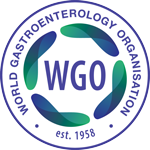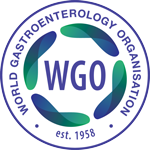Risk of TB and HBV reactivation with ustekinumab therapy
Review by Prof. Mark Topazian (USA)
Background
The global prevalence of Crohn’s disease (CD) is increasing. Biologic agents and JAK inhibitors are effective medical therapies for CD but have been associated with tuberculosis and hepatitis B (HBV) reactivation, and fatal cases have been described. Ustekinumab (UST) is a monoclonal antibody directed against the p40 subunit of interleukin 12 and interleukin 23. Chinese investigators conducted a multicenter retrospective cohort study of 721 patients who received UST for treatment of CD.
Findings
53 patients receiving UST had latent tuberculosis infection (LTBI) diagnosed by interferon gamma release assay or tuberculin skin test. Of these, 25 received prophylactic anti-TB therapy, most often isoniazid plus rifampin or isoniazid alone, and 28 received no chemoprophylaxis while on UST. After a mean follow-up of one year of UST therapy, none of the 53 patients developed signs or symptoms of tuberculosis. No hepatotoxicity of chemoprophylaxis was observed, and there was no statistically significant difference in final CD activity scores between patients who received vs. did not receive chemoprophylaxis.
Another 17 patients had HBV, including 14 with evidence of inactive infection (HBsAg +, serum HBV DNA < 2,000 IU/ml), and three with resolved infection (HBsAg -, HBsAb +, BHcAb +). Of these, 6 received no antiviral prophylaxis, eight received entecavir, and three received tenofovir. Over a mean of one year of follow-up on UST therapy, no symptoms of hepatitis or overt increases in serum liver test results were found.
The authors concluded that UST is safe and effective in CD patients with LTBI or chronic inactive HBV infection, and that prophylactic anti-infective therapy is not required in some patients.
Comment
Anti-tumor necrosis factor (TNF) agents are associated with a substantial risk of tuberculosis and hepatitis B infection reactivation – infections that are common in many parts of the world. Previous studies of UST in patients with psoriasis have suggested that, in contrast to anti-TNF agents, UST is associated with a low risk of reactivation of these infections. Data in inflammatory bowel disease patients has been lacking. This study is the largest published to date evaluating the safety of UST therapy in CD patients with LTBI or chronic HBV infection. The results suggest that UST is safe and effective in these patients, and that the decision to administer anti-infective chemoprophylaxis should probably be individualized. Limitations of the study include its retrospective design and limited number of cases.
Citation
Liu R, Li Z, Ye L, Hu J, Tang J, et al. Risk of Tuberculosis and Hepatitis B Reactivation in Patients With Crohn's Disease on Ustekinumab: A Nationwide Real-World Study. Inflamm Bowel Dis. 2024, PMID: 36880432.
View past News You Can Use commentaries

